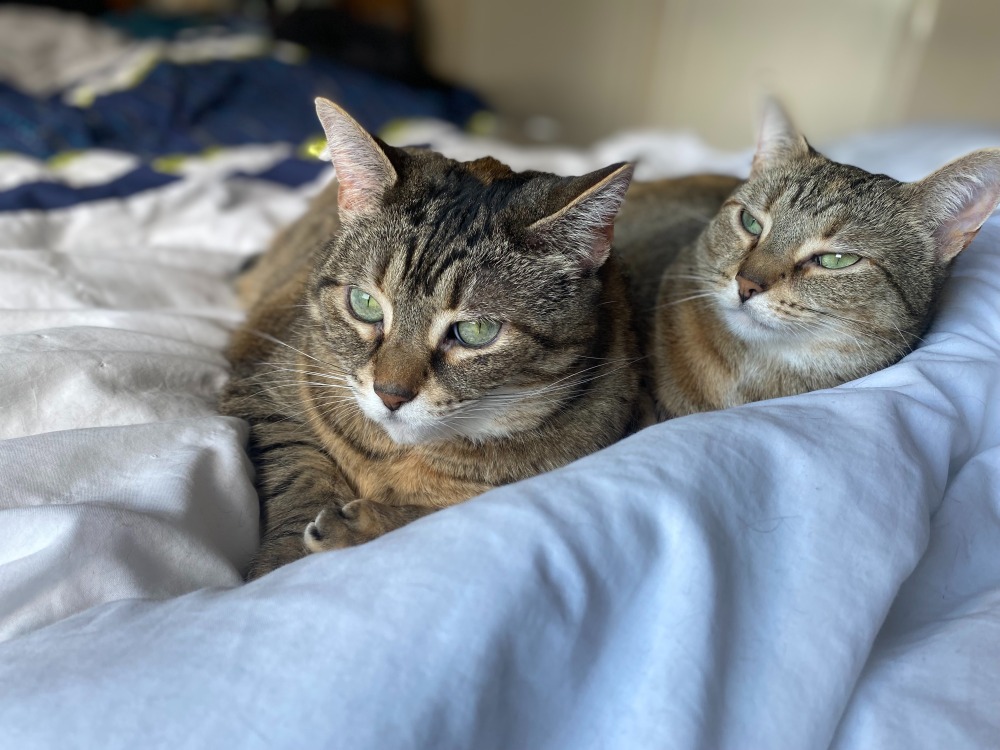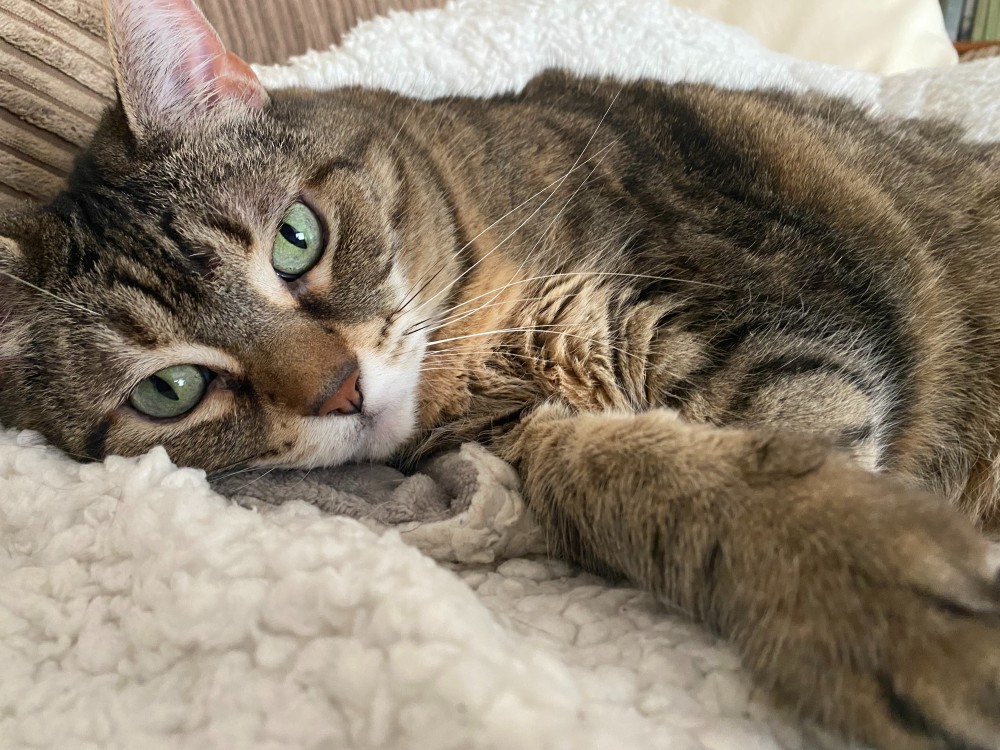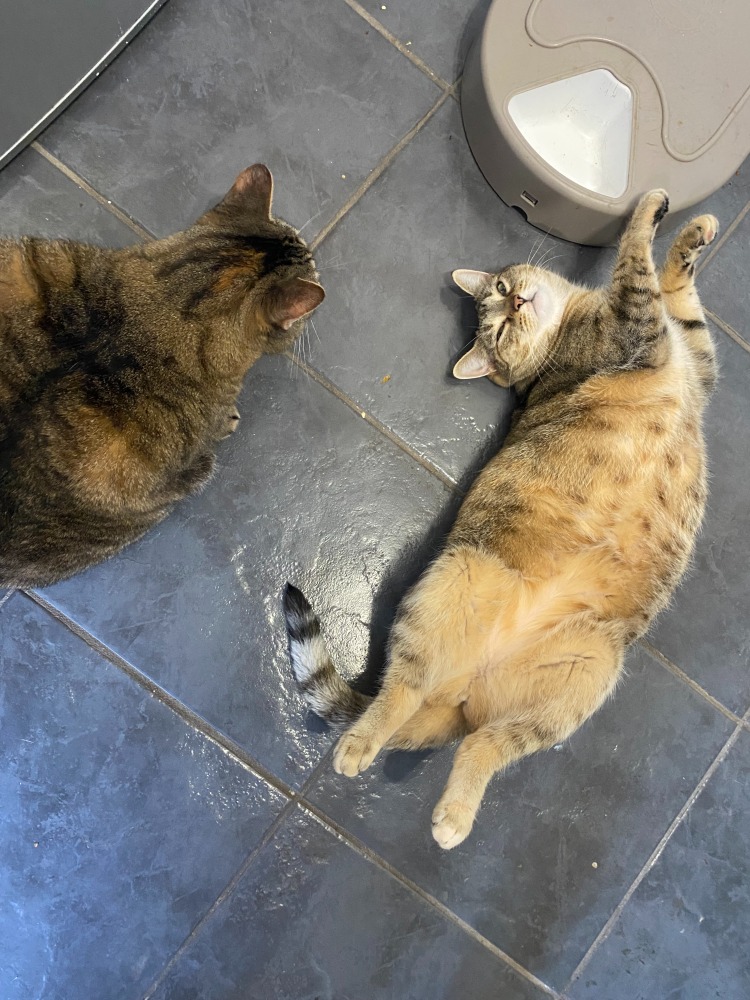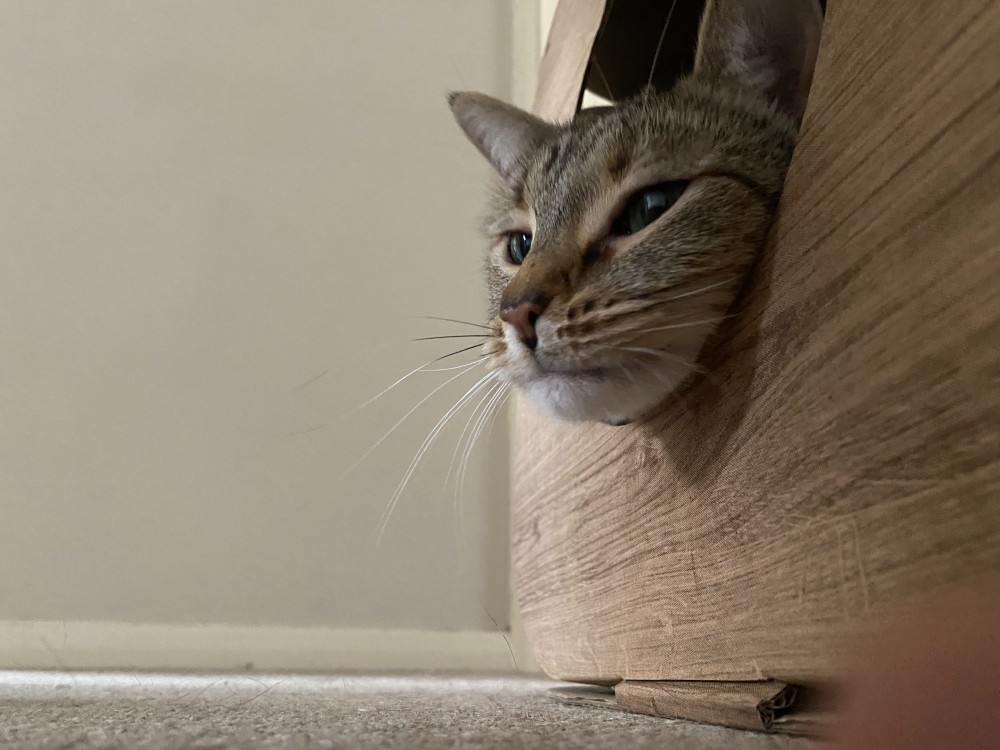Hi, I’m Dr. Lauren! Read my introduction to learn more about me and my two adventurous cats, Pancake and Tiller.
A rose, by any other name, would smell as sweet, goes the famous quote. Stay with me, here, as it’s not all about Shakespeare today. But rather, about nomenclature. Specifically, the names we use to refer to our pets.
The poet TS Elliot wrote about the Naming of Cats, in what subsequently inspired a musical phenomenon. From him, we learned that cats have various names, and that each name takes much deliberation. As a poor example, Pancake is often P-Cake, Panda Cake, or just Cakes; if she’s whacked Tiller on the head she might simply be P!!!. But moreso, and in a vein of thought that doesn’t exactly exemplify what TS Elliot was referring to, what about the names we use when referring to our relationships with our cats? What am I to Pancake? Her owner? Her pet parent? Her mom? If you’ll forgive one final Shakespearean reference, therein lies the rub.
It’s a complicated question, which deserves some thought.

Pet Terminology Through the Ages
Pets: domesticated around 15,000 years ago; unimaginable not to have our houses graced with them—muddy feet, stolen food, hair—always hair, and the occasional 3:00 am hairball found on the way to the bathroom. The word pet itself is believed to originate in the 1500s from a Scottish or Gaelic word peata, referring to loved, small ones, or pets.
Recent decades have seen huge changes, both in the medicine with which we provide our pets care, and the legality and welfare issues by which we round out their lives. For instance, we didn’t even know what hyperthyroidism was in cats until more recent decades, and it was only in the last few years that a viable treatment for the deadly feline disease of “feline infectious peritonitis” became available, thanks in large part to COVID-19.
Consumerism, too, likely factors in, as playing on the emotions of pet-owner consumers potentially influences their behaviors. In this way capitalism well, capitalizes, on the relationship between pet and owner, to make the relationship with our pets a tangible commodity. As one UK pet insurance company put it, some of the terminology is driven by the “pet pound”—where people are more likely to spend money on pets they humanize. In the US, maybe similarly applicable terminology might be the cat coin, or the dog dollar?
Simultaneously, people like Temple Grandin have opened our eyes in new ways, in recent years, to approach animal welfare; with this, and other advocates, come a plethora of new concerns about the ethics and legalities of pets. Rethinking the moral dilemmas and debates also means rethinking terms that imply the nature of the relationship between pet and human. This also helps to better define the law that is therefore applicable.

The Shifting Paradigm of Pet-Human Relationships
One study, unsurprisingly, found that the more owners of pets anthropomorphize their animals (view them as having human qualities), the more they received social support from their pet, and additionally, the more they in turn treated their pet as a cohort. With such anthropomorphic tendencies of pet ownership on the rise (consider the frequency with which you now see a dog outside in the rain without a jacket?), it’s no wonder that most younger pet owners view pets as family and not simply pets—often citing they love their cat or dog more than their own mother. With such strong bonds at play, it is no surprise that terminology such as “pet parent” rather than owner, has arisen to reflect the evolution of the pet-human relationship.
I’ll be honest that I’ve never really grown to love the term pet parent, or cat mom, even though, essentially, that’s exactly what I am. Both Tiller and Pancake rely on me for everything: food, water, shelter, healthcare. But equally, I no more own these cats than they own me. It’s a mutually beneficial relationship, with certainly a lot of emotion behind it. Pancake gets annoyed when she’s not fed precisely at 5:00 am, and again by 7:00 am, and she really dislikes being brushed, and having flea treatments applied, but loves cheese and a chin scratch. I know these things because I care greatly about her, but trying to pin that down into conventional words is a difficult one.
Perhaps the better way to look at the topic is to again borrow from TS Elliot: the naming of cats is a difficult matter…or as another famous poet once said: Let it be.
And if you’ll excuse me, on that note, I’m going to go cuddle Rum Tum Tigger.

Postscript Tips
Regardless of terminology, things I recommend as a vet that you as a guardian/owner/pet parent/keeper can do to keep your cat healthy and happy:
- Ensure your cat has an annual vet visit. For cats that don’t like travel, consider a housecall vet. Regardless, this is such an important relationship to have when your cat does get sick, and vets can help you detect early signs of disease before they begin.
- Invest in pet insurance. As a vet, I wish all my patients had insurance.
- Get your cat spayed or neutered. It is hugely beneficial for their health, in the long term.
- Don’t feed trendy foods. Find tried and true brands, speak with your vet, and find what works out of those options for your cat. It’s easy to make bad food, and hard to make a good one. That’s why few companies can do so.
- Enjoy the time with your pets. This may be the most important tip here. It may be hard to remember when you step on a hairball on the way to the bathroom, but pets are here for far less time than we are. It’s easy to forget just how much joy they bring, as they share all the intimate, everyday moments with us, from good to bad. Make the time to play, chill out, and cuddle them. You both deserve it!
Source link

